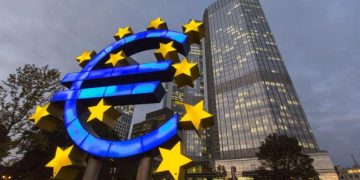Stock market volatility is an inherent part of investing, often signaling fluctuations in investor sentiment, economic conditions, or market expectations. Recently, the global stock market has experienced sharp swings due to various factors, including economic uncertainties, geopolitical tensions, and unexpected global events like the COVID-19 pandemic. For investors, these fluctuations can be unsettling, leading to one central question: Does stock market volatility mean it’s time for investors to reassess their risk appetite?
In this article, we will examine the relationship between market volatility and risk tolerance, explore the factors that drive market swings, and provide a framework for how investors might adjust their approach to risk in times of heightened uncertainty. We will also assess whether volatility should lead to drastic changes in investment strategies or if it represents a normal part of the long-term investing journey.
1. Understanding Stock Market Volatility
Before diving into whether stock market volatility should prompt a reassessment of risk, it’s important to understand what volatility means in the context of investing.
Stock market volatility refers to the degree of variation in the price of stocks or stock indices over time. High volatility often indicates significant price fluctuations, while low volatility suggests steadier, more predictable market movements. Volatility can be driven by a wide range of factors:
- Economic Data: Disappointing or unexpected economic reports, such as GDP growth, inflation data, and employment figures, can lead to sharp changes in investor sentiment.
- Geopolitical Events: Political instability, conflicts, and changes in government policies can contribute to uncertainty and market swings.
- Corporate Earnings Reports: Earnings misses or positive surprises from major companies can affect broader market indices and cause volatility.
- Market Speculation: Investor sentiment, driven by speculation or herd behavior, can sometimes lead to exaggerated market movements, even in the absence of fundamental changes.
- External Shocks: Global events, such as natural disasters or pandemics, can cause sudden and severe market fluctuations.
Volatility is often viewed negatively because it introduces uncertainty, but it is also a natural component of financial markets, especially in the context of long-term investing.
2. Risk Appetite: What It Means and Why It Matters
Risk appetite is a critical concept for investors. It refers to the level of risk an investor is willing to take in pursuit of returns. Risk tolerance, on the other hand, is an individual’s ability to endure potential losses without significant emotional distress. These two factors—appetite and tolerance—play a significant role in determining an investor’s asset allocation and investment choices.
2.1. The Role of Risk Appetite in Investment Strategy
Investors with a high risk appetite typically allocate a significant portion of their portfolio to riskier assets, such as equities, emerging markets, and speculative investments. These investors are often comfortable with the possibility of short-term losses in exchange for the potential of higher long-term returns.
On the other hand, investors with a low risk appetite may prefer safer assets like government bonds, cash equivalents, or blue-chip stocks with stable dividends. These investors value stability and are more sensitive to market fluctuations, seeking to avoid the emotional stress and financial impact of large losses.
Having a clear understanding of one’s risk appetite is crucial because it helps guide investment decisions and asset allocation. The wrong risk level—too much or too little—can lead to discomfort and poor decision-making during periods of market turbulence.
2.2. How Volatility Affects Risk Appetite
Stock market volatility can significantly impact investors’ risk appetite, especially during periods of heightened uncertainty. The constant ups and downs in market prices can trigger emotions such as fear, panic, and anxiety, especially for those who are not accustomed to market fluctuations.
For investors with a low risk appetite, volatility can be particularly unsettling. These individuals may find themselves tempted to sell off stocks during downturns, potentially locking in losses and missing out on future recovery. On the flip side, investors with a high risk appetite may become overly confident in the face of volatility, increasing their exposure to risky assets without fully assessing the underlying risks.
Ultimately, the level of volatility can cause investors to question whether their current risk tolerance aligns with their emotional response to market events. This leads to the important question: should investors reassess their risk appetite in response to stock market volatility?
3. Should Investors Reassess Their Risk Appetite in Times of Market Volatility?
The answer to this question is not straightforward, as it depends on various factors, including an investor’s long-term financial goals, time horizon, and ability to handle market fluctuations.
3.1. Reassessing Risk Appetite: A Case for Caution
For some investors, experiencing sharp market volatility can serve as an eye-opening event, prompting a reassessment of their investment strategy and risk appetite. If an investor feels uneasy during periods of market turbulence, it could indicate that their current asset allocation is not aligned with their emotional tolerance for risk. This feeling may be particularly true for those who are invested in highly volatile stocks, speculative assets, or sectors prone to significant swings.
In such cases, it may be prudent to rebalance the portfolio to reduce exposure to risky assets and increase allocations to more stable investments. For example, an investor who is feeling stressed by stock market volatility might choose to increase their holdings in bonds, dividend-paying stocks, or real estate—assets that tend to be less volatile than equities.
Reassessing risk appetite does not necessarily mean exiting the market or abandoning all risk. Instead, it could involve adopting a more diversified portfolio or adjusting the proportion of riskier assets relative to safer ones. A more balanced approach may provide greater peace of mind during periods of market uncertainty.
3.2. Reassessing Risk Appetite: A Case for Staying the Course
On the other hand, market volatility is a normal part of investing, and many seasoned investors believe that it should not prompt drastic changes to one’s long-term strategy. Rather than adjusting risk appetite in response to short-term market movements, some investors advocate for sticking to a disciplined investment plan and focusing on long-term objectives.
For long-term investors, volatility is often viewed as a temporary disruption rather than a signal to make drastic portfolio changes. Historically, market volatility has been followed by periods of recovery and growth. For example, after major declines during the Global Financial Crisis of 2007-2008, the market eventually rebounded, providing substantial returns for those who stayed invested.
Investors who take a long-term perspective may choose to ride out periods of volatility, focusing on the fundamentals of their investments rather than reacting to short-term fluctuations. This approach can help avoid making impulsive decisions based on fear or panic, such as selling investments at a loss or abandoning a well-diversified portfolio.
3.3. Adjusting Risk Appetite Based on Personal Circumstances
While market volatility should not necessarily prompt knee-jerk reactions, it can be an opportunity to reassess one’s financial situation and goals. Changes in personal circumstances—such as nearing retirement, experiencing a life event like a marriage or the birth of a child, or reaching a major financial milestone—may require an investor to re-evaluate their risk tolerance.
For example, an investor approaching retirement may want to reduce their exposure to high-risk assets to ensure that they have sufficient funds to cover living expenses. On the other hand, a younger investor with a long time horizon may have a higher tolerance for risk, allowing them to maintain exposure to equities and other growth-oriented assets despite market volatility.
3.4. Using Volatility as a Strategic Opportunity
Some investors view volatility as an opportunity to adjust their portfolio in a strategic manner. Instead of making rash decisions in response to market declines, they may choose to capitalize on market drops by purchasing undervalued stocks or rebalancing their portfolio at more favorable entry points.
This approach is especially relevant for investors who have a long-term horizon and can tolerate short-term fluctuations. By maintaining a disciplined, strategic approach, investors can potentially benefit from market corrections, purchasing quality assets at discounted prices during times of market stress.

4. Framework for Reassessing Risk Appetite
If an investor is considering reassessing their risk appetite due to market volatility, it’s important to follow a structured process. Here are some key steps to guide the decision-making process:
- Review Financial Goals: Ensure that your investment strategy aligns with your long-term financial goals. If those goals have shifted (e.g., retirement plans, saving for education, etc.), you may need to adjust your risk tolerance accordingly.
- Evaluate Time Horizon: A longer investment horizon generally allows for greater risk-taking, while a shorter horizon requires more caution. If your time horizon has shortened, consider reducing exposure to volatile assets.
- Assess Emotional Response: Pay attention to your emotional reaction to market volatility. If you find yourself overly anxious or reactive, it may be a sign that your current risk profile is too aggressive. Consider dialing back your exposure to high-risk assets.
- Diversify Portfolio: Ensure that your portfolio is properly diversified across asset classes and sectors. Diversification can help mitigate the impact of market volatility and reduce risk.
- Consult a Financial Advisor: If uncertain, seek advice from a financial professional who can provide personalized guidance based on your specific financial situation and risk tolerance.
5. Conclusion: Volatility Is Not a One-Size-Fits-All Signal
Stock market volatility is a natural part of investing and can present both challenges and opportunities. While volatility may cause some investors to reassess their risk appetite, it should not necessarily prompt drastic changes in investment strategy unless there are changes in personal circumstances or financial goals.
For long-term investors, staying the course during market fluctuations may prove to be the best strategy, while those who are feeling stressed by volatility may benefit from rebalancing their portfolios to better align with their emotional tolerance for risk. Ultimately, the key is to assess your personal financial situation, long-term objectives, and ability to handle market fluctuations, and to develop a strategy that reflects these factors.
By understanding your risk appetite and making informed decisions based on your circumstances, you can navigate periods of market volatility with confidence and avoid making impulsive decisions that could harm your long-term investment goals.



































